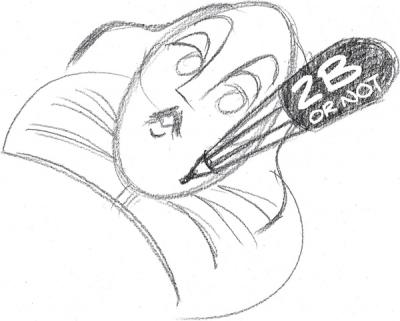400 years on, Shakespeare remains the most translated canon after the Bible. He is the embodiment of British imperial culture, carries a universal appeal as the most performed of the world’s playwright, and has had built around him an almost mythical dimension.
It is no coincidence that the Globe Theatre has chosen to present Hamlet across the world. One of the most acclaimed of Shakespeare’s works, it raises an abundance of questions about the meaning of life and that of politics. By the time Shakespeare wrote Hamlet, he had also fine tuned his pen and was at his most creative in his manipulation of the English language. There are myriad reasons for loving Shakespeare and Hamlet in particular. I love the way in which he wields a mighty pen to share his understanding of the political man and accurately dissect him.
And the magic, of course, is that 400 years on his analysis could not be more relevant to a tempest-tossed island in the southern hemisphere. Especially if we get away from the psycho-drama going in Hamlet’s head to focus on the wider political picture: the stress on father/son inheritance, the disturbing presence of past negotiations onto the present, the rivalry between legitimate and illegitimate successors. Hamlet dramatises different models of kingship and succession, interrogating past, present and potential occupants to the throne. In dramatising the end of a bloodline, Shakespeare presents perhaps his most apocalyptic vision of the end of a political era.
Shakespeare’s tour de force in Hamlet is Claudius who speaks two different voices, the private and the public. Here is his opening statement:
Claudius
Though yet of Hamlet our dear brother’s death
The memory be green, and that it us befitted
To bear our hearts in grief and our whole kingdom
To be contracted in one brow of woe,
Yet so far hath discretion fought with nature
That we with wisest sorrow think on him,
Together with remembrance of ourselves.
Therefore our sometime sister, now our queen,
The imperial jointress to this warlike state,
Have we, as ’twere with a defeated joy,–
With an auspicious and a dropping eye,
With mirth in funeral and with dirge in marriage,
In equal scale weighing delight and dole,–
Taken to wife (2.2)
Claudius speaks but does not communicate. Through devious rhetoric he seeks to make acceptable and wise an action which is indefensible, having killed his brother to usurp both power and his wife. We almost feel sorry for him, he had no choice ‘pov diab la, bechara’ but to do what he did. Through a matter of rhetoric, a political leader establishes himself as father (to Prince and kingdom). Such is Shakespeare’s skill that we might not even have needed an expensive barrister from his neck of the woods to declare a no conflict of interest in matters of local statecraft.
As a contrast, mark Hamlet’s self-introduction through the briefest soliloquy, ’A little more than kin and less than kind’. Claudius is ‘plis ki fami’ to him, being now his uncle and step father. This rejuvenated family business gets far too close for comfort for Hamlet and will turn out to be less than kind to his destiny. In just 9 little words, Shakespeare unfolds the drama of family tricks and treachery and its personal and national consequences.
Hamlet is alive and fiery, it defies boundaries of time and space. I am looking forward to witnessing the energy it generates locally on Friday 22th of January to a full house.
To be or not to be embezzled by Hamlet
- Publicité -
EN CONTINU ↻


